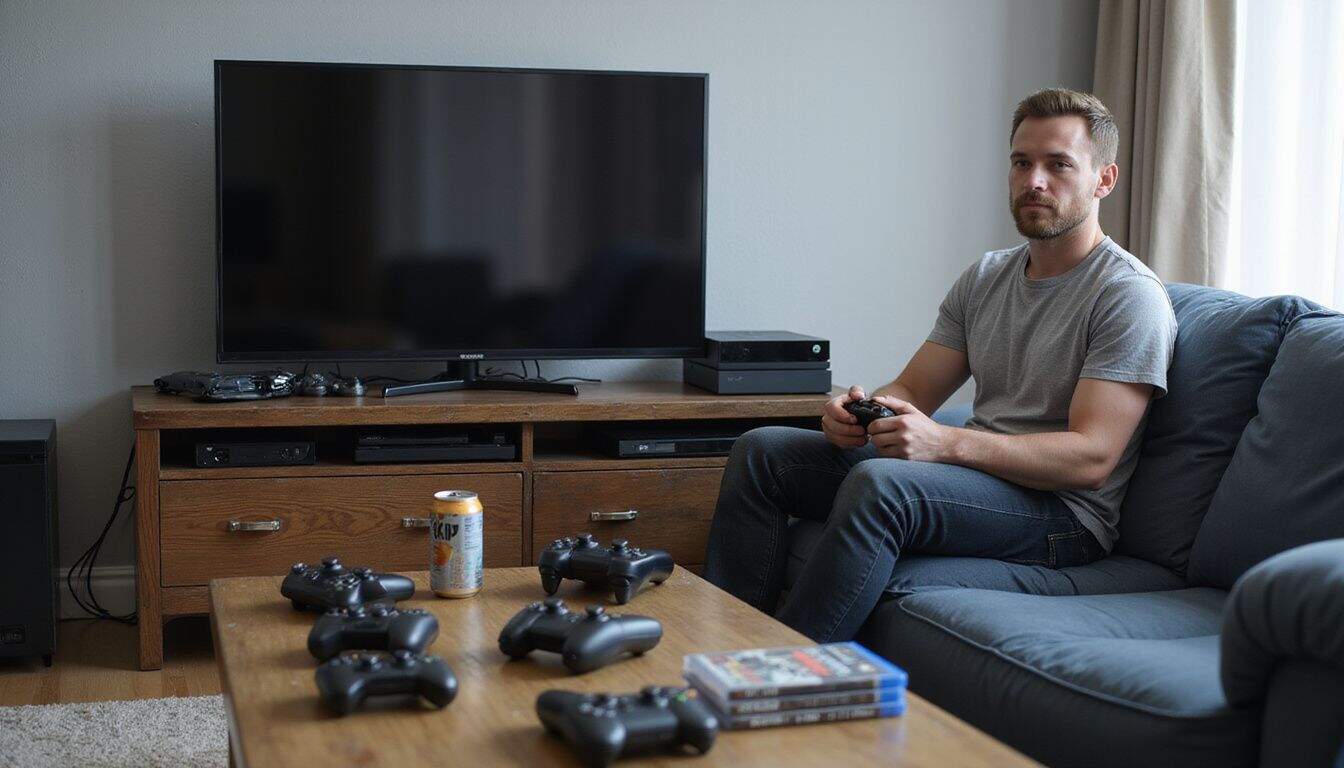Many people wonder, is gaming a hobby or is it something closer to a passion? With the global number of players expected to surpass 3.5 billion by the end of 2025, it’s clear that video games are more than just a passing trend. This guide will walk you through the surprising benefits and the real risks of gaming to help you find a healthy balance.
Let’s explore how gaming habits are changing and what that means for you.
Key Takeaways
Gaming is a popular hobby with over 3.4 billion active players in 2025, and this number is steadily growing.
The benefits of gaming include improved cognitive skills like problem-solving, a boost in creativity from sandbox games like Minecraft, and stronger social bonds formed in multiplayer games like Fortnite.
By 2025, perceptions of gaming continue to shift. This is thanks to the booming mobile game market, where women make up a significant portion of players, and the massive popularity of esports competitions that rival traditional sports.
New trends like cloud gaming services, such as Xbox Cloud Gaming and GeForce Now, are making high-end games more accessible. This is increasing player numbers but also raising concerns about responsible gaming habits.
Table of Contents
Is Gaming Considered a Hobby?
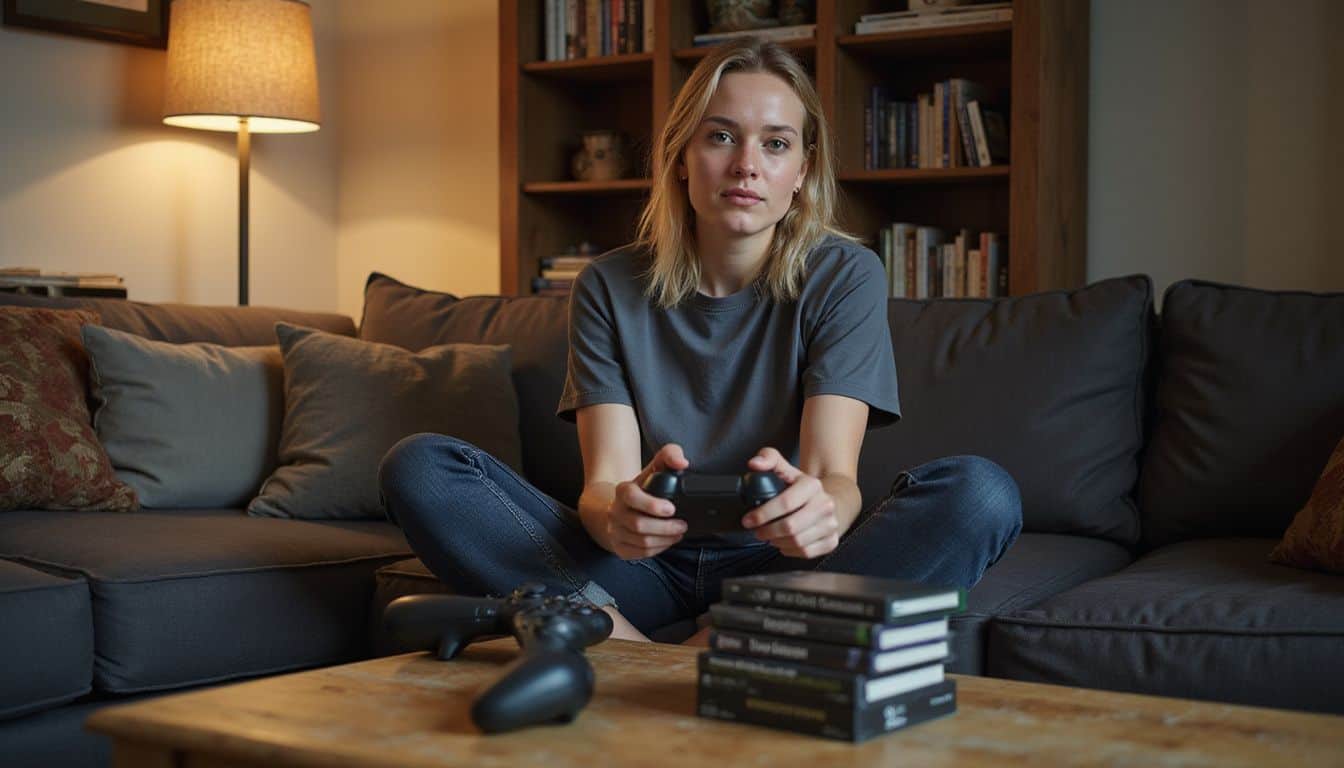
Yes, gaming is absolutely considered a hobby. A hobby is simply an activity you do in your leisure time for pleasure, and for over 3.4 billion people worldwide in 2025, video games—including slots online—fit that description perfectly.
It’s a popular pastime that crosses all age and gender lines. While there used to be a stereotype of a “gamer,” data now shows that the community is incredibly diverse. In the US, for instance, about 53% of mobile gamers are female.
Many women have embraced gaming for relaxation, social connection, or a creative outlet. Gaming subscriptions are also incredibly common, with services like Xbox Game Pass or PlayStation Plus offering huge libraries of games for a monthly fee.
Advantages of Gaming as a Hobby
Gaming can sharpen your decision-making skills and boost your confidence. It can even help you build resilience to stress, all while offering a creative outlet and fun social experiences.
Enhances cognitive skills
Video games can sharpen your mind. A notable study from the National Institutes of Health (NIH) looked at nearly 2,000 kids. It found that children who played video games for three or more hours a day performed better on cognitive tests involving impulse control and working memory.
Functional MRI scans revealed that these gamers had more brain activity in areas related to attention and memory. Games, especially fast-paced action or strategy games like StarCraft or League of Legends, can improve multitasking, decision-making, and problem-solving abilities.
Improving these skills can reduce anxiety about schoolwork and build confidence. While it’s important to be aware of the risks of gaming disorder, playing in a controlled way offers clear benefits for mental development.
Boosts creativity
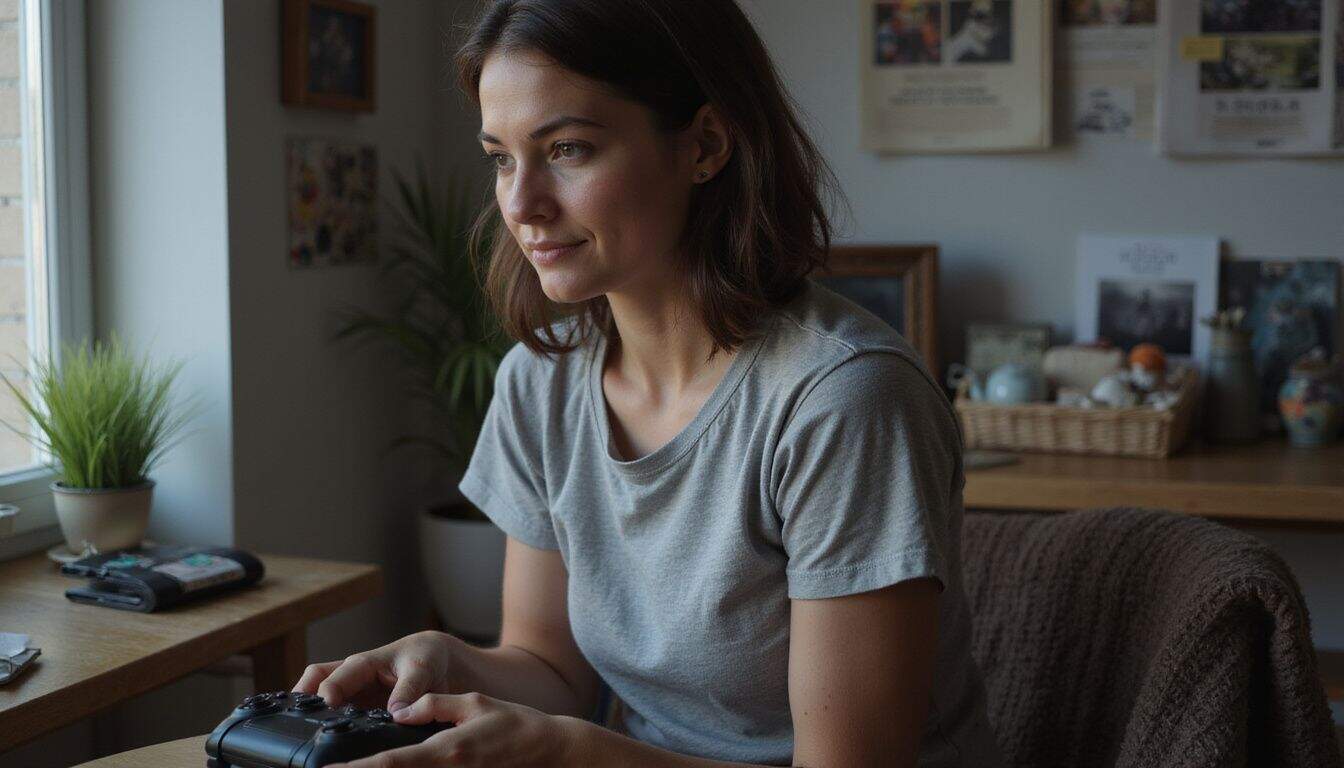
Gaming is a fantastic outlet for creativity. It provides a safe space to experiment with new ideas without fear of failure.
Sandbox games like Minecraft and Roblox give you the tools to build entire worlds from your imagination. Other games, like The Sims, let you create unique stories and characters. These activities encourage you to think outside the box and solve problems in inventive ways.
Creativity takes courage. – Henri Matisse
This creative thinking isn’t just for fun. It builds resilience and an open mind for tackling challenges in the real world. Many players find rewarding social connections by sharing their creations online, turning a personal hobby into a shared experience.
Encourages social interaction
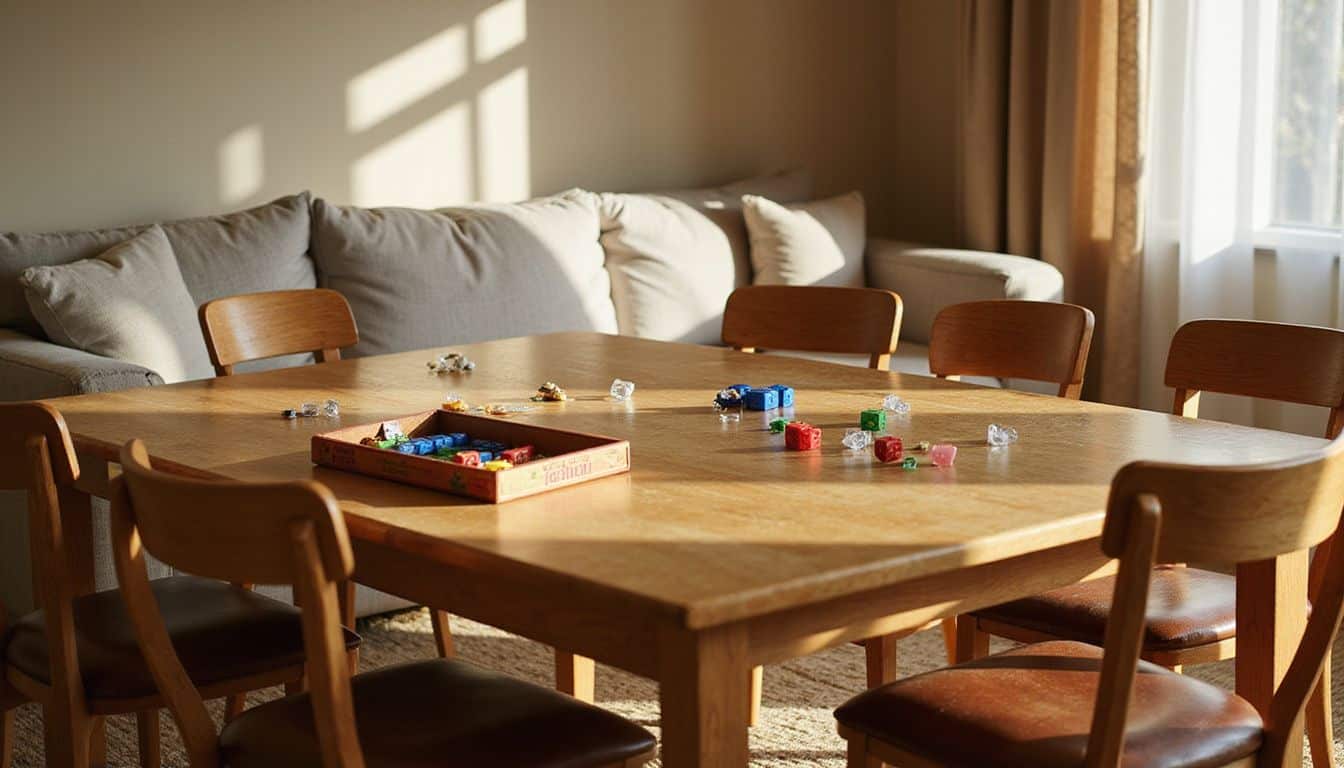
Gaming is often much more social than people think. According to a 2024 Pew Research study, nearly half of teens in the U.S. say video games have helped them make new friends and stay connected with existing ones. Communication platforms like Discord are central hubs for gaming communities.
Multiplayer games like Minecraft, Fortnite, or Valorant require teamwork and communication to succeed. These shared experiences help you build strong social connections as you work together to solve problems and achieve common goals. For many, these online interactions can reduce feelings of loneliness and boost self-esteem. It’s one of the best reasons why games are good for you.
Criticisms of Gaming as a Hobby
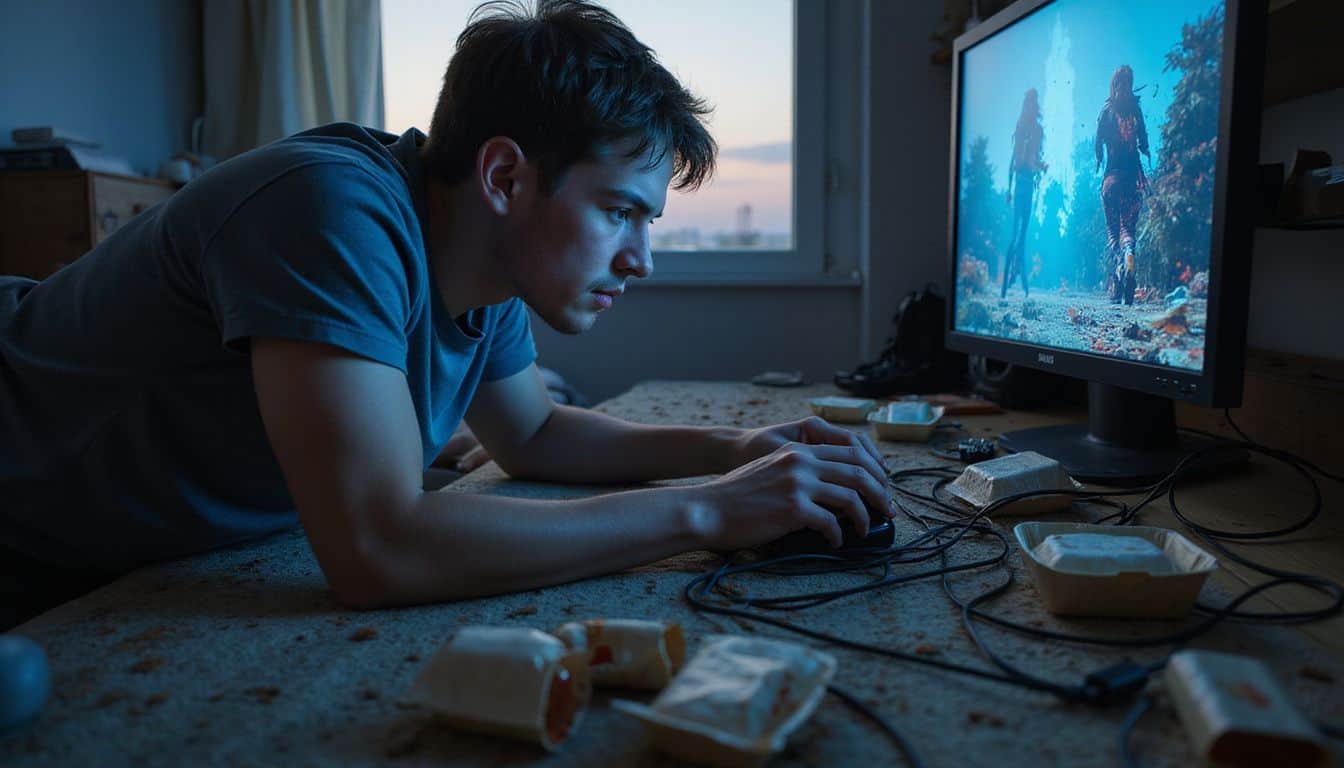
Despite its benefits, gaming isn’t without its downsides. Legitimate concerns about addiction, health issues, and exposure to toxic behavior are worth discussing.
Risk of addiction
Gaming addiction is a real and serious issue. The World Health Organization (WHO) officially recognized it as “Gaming Disorder” in its International Classification of Diseases (ICD-11). Globally, it’s estimated to affect around 3-4% of gamers, which translates to millions of people.
As a friend or family member, you might see warning signs like trouble sleeping, neglecting responsibilities, and anxiety when not playing. Over time, a gaming disorder can seriously harm relationships, school performance, and careers.
Ignoring gaming addiction can put our mental health and well-being at risk.
Certain game designs can encourage compulsive behavior, especially in players who may already be vulnerable. The social pressure within online communities can also make it harder to log off.
I’ve personally seen friends sacrifice sleep and other important parts of their lives for late-night gaming sessions. It’s a reminder of how an enjoyable hobby can become an unhealthy obsession if not kept in check.
Potential health concerns

Spending too much time gaming can lead to some real health concerns. Staying up late to play often causes sleep deprivation, which messes with your daily energy and focus.
It can also lead to poor eating habits, as it’s easy to grab quick, unhealthy snacks during long sessions. Sitting for hours also means less physical activity, which increases the risk of weight gain and other long-term health issues. Physical ailments like “gamer’s thumb” or carpal tunnel syndrome are also risks from repetitive motions.
A simple tip to combat eye strain is the 20-20-20 rule: every 20 minutes, look at something 20 feet away for at least 20 seconds. Too much screen time is also linked to mental health issues like depression and anxiety. Internet Gaming Disorder (IGD) is a condition where gaming becomes uncontrollable and harms a person’s work, school, and relationships.
Gaming: Hobby vs. Addiction

So where is the line between a fun hobby and a harmful addiction? A hobby adds joy to your life and is something you control. An addiction, on the other hand, starts to control you.
The American Psychiatric Association outlines warning signs for Internet Gaming Disorder. These include a preoccupation with gaming, withdrawal symptoms when not playing, and continuing to game despite negative consequences. If gaming is causing significant problems in major areas of your life, such as relationships, work, or school, it might be time to seek help.
I’ve seen friends struggle with finding that balance, losing hours every day to games like Fortnite or Call of Duty. Casual gaming can boost your mood and help you connect with people. But when it leads to sleep loss and social isolation, the fun is gone.
Setting clear boundaries is essential. Women, in particular, often juggle many responsibilities, so it’s important to protect your time and ensure gaming remains a positive force in your life.
Gaming as a Hobby: How Will Perceptions Change in 2025?
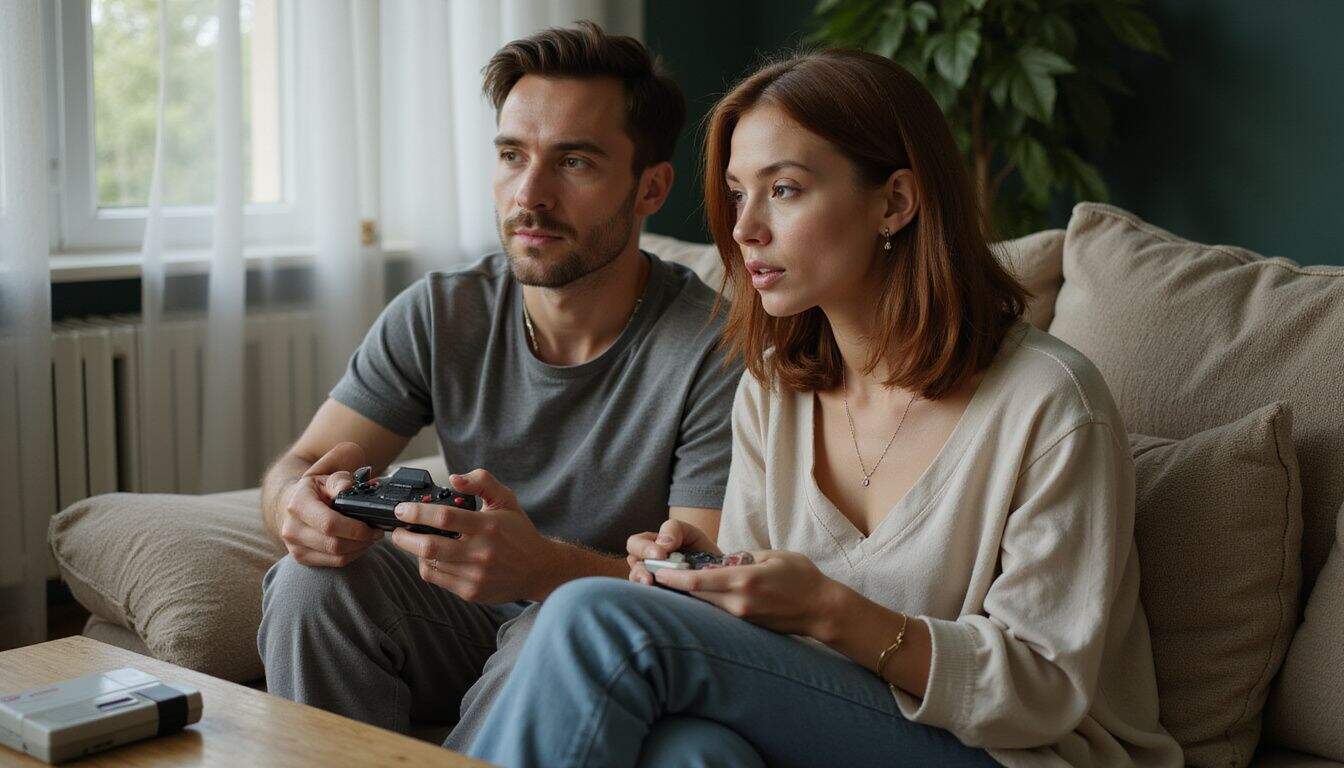
In 2025, gaming is more mainstream than ever. The COVID-19 lockdowns introduced many people to gaming as a way to stay connected and entertained at home.
Streaming platforms like Twitch and YouTube Gaming have also turned gaming into a viable career for many, further legitimizing it as a productive activity. These platforms allow skilled players and entertainers to build massive audiences. Nostalgia for classic games also helps position gaming as a culturally significant medium, much like reading books or watching movies.
At the same time, the world of esports continues to explode. The global esports market is projected to grow to over $8 billion by 2025. Major tournaments like the League of Legends World Championship draw millions of viewers and offer prize pools worth millions of dollars, rivaling traditional sporting events.
This growth brings new attention to the scene but also continues the conversation about promoting healthy and safe habits among both casual and competitive players.
People Also Ask
Is gaming considered a real hobby in 2025?
Yes, gaming is widely accepted as a genuine hobby in 2025, offering surprising pros like improved problem-solving skills and social connections, along with cons such as screen fatigue or reduced physical activity.
What are some unexpected benefits of choosing gaming as a hobby?
Gaming can sharpen your decision-making abilities, boost creativity through immersive storytelling experiences, and even help build friendships by connecting you with other players online.
Are there any hidden downsides to having gaming as your main hobby?
While enjoyable and engaging overall, excessive time spent on games may lead to less exercise or eye strain from prolonged screen use—important factors to consider when balancing hobbies.
How can gamers balance the pros and cons effectively in 2025?
Gamers should set clear limits for playtime each day, take regular breaks to rest their eyes and bodies between sessions, and actively pursue outdoor activities or sports alongside their favorite digital pastime.
References
https://medium.com/@AverageConsumerReviews/pros-and-cons-of-gaming-as-a-hobby-206b81e20ada
https://internationalschooling.org/blog/video-gaming-pros-and-cons (2021-06-22)
https://living.geico.com/home/technology/9-reasons-to-give-video-games-a-try/
https://www.projectboldlife.com/health/unexpected-benefits-gaming-gamers-perspective/
https://www.robinrecovery.com/post/video-game-addiction-statistics-and-facts
https://www.charliehealth.com/post/video-games-and-mental-health
https://www.wellpower.org/blog/the-surprising-truth-about-video-games-and-mental-health/
https://pmc.ncbi.nlm.nih.gov/articles/PMC558687/
https://www.eyeonannapolis.net/2025/04/is-hobby-gaming-making-a-comeback/ (2025-04-20)
